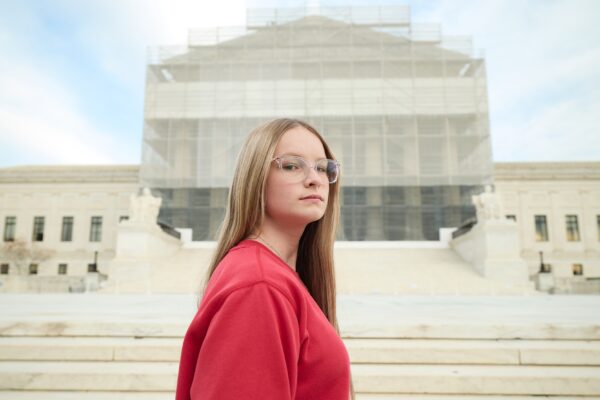Martin Gill, the plaintiff in the ACLU’s lawsuit seeking to overturn Florida law banning gay people from adopting, participated in the Rally in Tally today to urge Florida lawmakers to support LGBT equality. The following is the speech Martin gave at the rally.
Good afternoon,
Thank you for all for being here.
I was happy being a foster parent. My partner and I have fostered a total of 10 children. Eight of those 10 were later reunited with the biological families. That is the first goal of foster care — keeping families together. Sure, giving kids back to their families is one of the hardest parts of being a foster parent, but my partner and I support and believe in reunification whenever possible.
We got a call from a DCF worker in December of 2004 wanting to place two young brothers. My first response was "No." We had recently bought a home in Georgia and were planning to relocate. The case worker was persistent and assured us the placement would only be a month or two. I knew we could give these two boys a good Christmas. The thought of them spending Christmas in a shelter really broke my heart.
So we agreed. And for the next several months we were happy enough with that arrangement.
Then about a year into their placement, when the rights of their biological parents were terminated, we were told that the goal for the children had changed. It was now permanency, and for those two, that meant adoption.
An adoption case worker came to our home one day and met with us about DCF's permanency plan. He said that sibling groups are amongst the hardest placements. On top of that, they were African-American and were born into substance abuse. When they were newborns, each of them had to spend 10 days at Jackson Memorial for detox, as they had cocaine in their systems.
He said the only way they would be adopted is if they split them up. The baby who was now a year and a half would be much more desirable. The older brother, then six, was approaching the upper limit for adoption. While the state tries to get every child adopted, in reality, after about kindergarten, there is little chance of being adopted.
I could not bear the thought of the boys being split up, especially after all the older brother had been through — his little brother meant everything to him.
He was four years old when he was first placed with us. He was so traumatized he couldn't speak for the first month. He was depressed. The separation from his biological family had thoroughly traumatized him. One of the things that pulled him through was that he was placed in our home along with his younger brother. We knew he really loved his little brother. He protected him. As with many foster children, he wanted to take care of him — to change and feed him. With victims of neglect, that is often the case. It is children who take care of their younger siblings, and this is what he had done.
There was no question in my mind. I had to adopt these two. Nothing else would be right. Splitting them up would have been absolute devastation to the older brother. He had already been through one very difficult separation and he might never recover. And for the baby, it would mean taking him away from the only parents he had ever known.
These kids needed a permanent family and they needed the stability and continuity that only we could offer. Morally, we had to adopt them. It was the only right thing to do. That’s why we called the ACLU to see if there was any way that could happen. Thankfully, they took our case.
Our two sons have now been in our home well over four years. When DCF brought them to us, they were in pretty bad shape, both medically and developmentally. I am happy to say that today, they are thriving. Our eight year old is an avid reader who likes school and has many friends. Our four year old can write his name, count to 30 and is learning to sound out words.
The exclusion of gay people from adopting has deprived my kids of the security of being adopted for the past three years. And there are many other children denied the possibility of being adopted because of this law. Each year hundreds of kids in Florida turn 18 and age out of the system having never been adopted.
We didn’t win the right to adopt. We have only been given the privilege. I say the privilege, because each individual must be carefully screened, as we were, so that DCF can ensure that only the best parents get that privilege.
The only ones who should have the absolute right of adoption are the 3,535 children who are in Florida’s foster care system — still waiting for the State of Florida to find them adoptive parents.
We are grateful for the judge’s decision. We are hopeful the appellate courts will agree with Judge Lederman that the ban does nothing to help children, and instead harms them.
We are grateful as well to the ACLU's LGBT Project. Rob Rosenwald, Leslie Cooper and James Esseks are exceptional lawyers and are truly dedicated to their cause. My children's lawyers at Greenburg Traurig, Hilarie Bass and Rick Gonzales have shown true dedication and did a great job as well.

